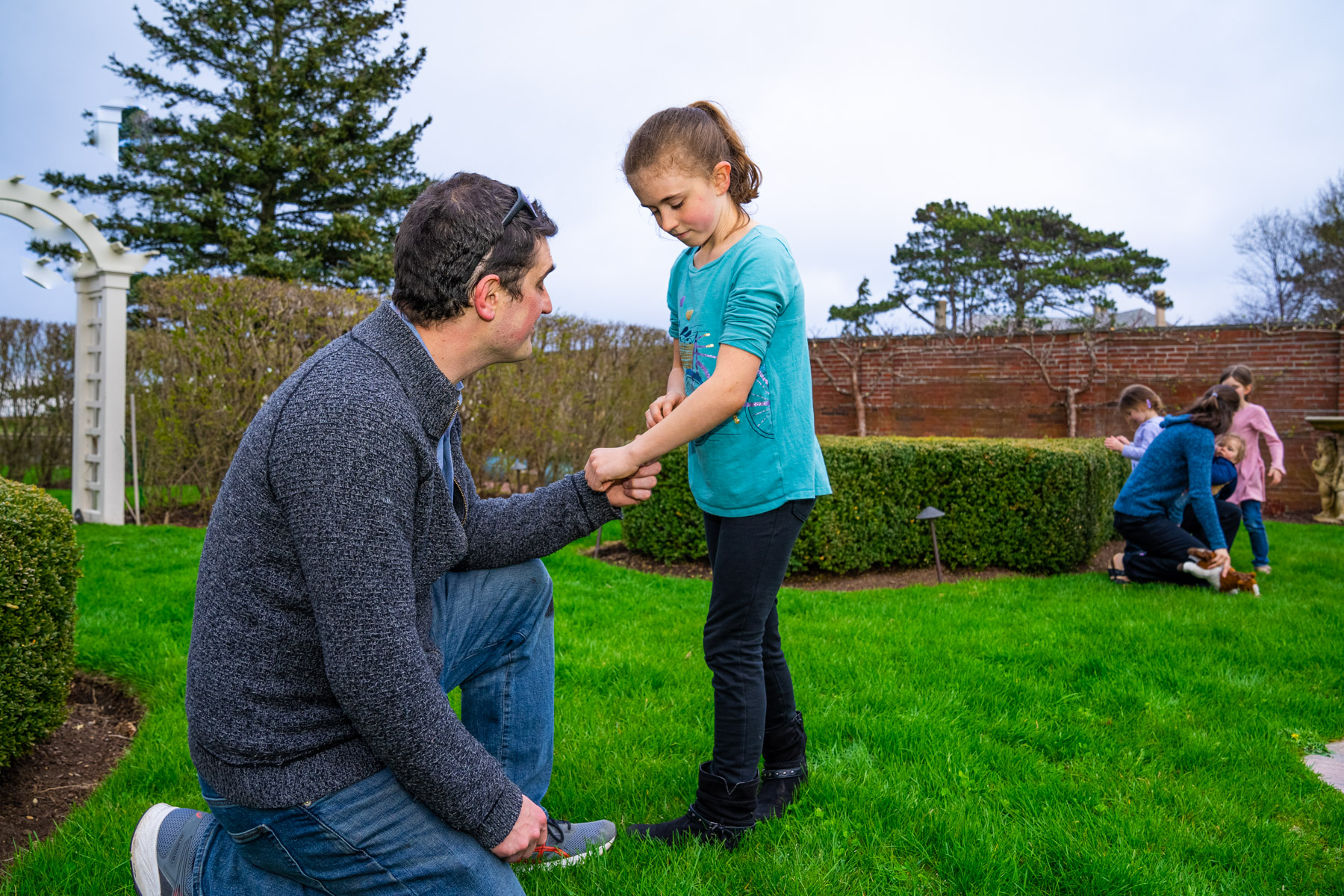
How to Keep Mosquitoes & Ticks Out of Your Yard: The Essential Guide
When it comes to enjoying time in your New England yard, few things are more frustrating than lurking pests. These unwanted guests on your property can really take away from the fun.
Mosquitoes and ticks are particularly troublesome as they are more than just a nuisance. These pests can also carry and transmit dangerous diseases.
We know that you want to do everything you can to keep mosquitoes and ticks away. In this helpful guide, we’ll dive into how to get rid of mosquitoes in your yard. We’ll cover steps that you can take yourself, as well as how you can invest in professional mosquito control to help significantly reduce the populations of these pests on your property.
We’ll also dive into tick pest control. We’ll share what’s likely bringing them there in the first place and how to get rid of them.
Neither of these pests should have the chance to ruin your time outside. With proper mosquito and tick control, you can take back your yard.
Table of Contents
Controlling Mosquitoes in Your Yard
How to Get Rid of Ticks in Your Yard
Is Mosquito and Tick Control Safe?
Hiring Professional Pest Control Services
Controlling Mosquitoes in Your Yard
Mosquitoes actually fall in the family of small flies. But the trouble with mosquitoes is that they use their piercing, sucking mouthparts to draw a blood meal. Females use this blood to produce their eggs.
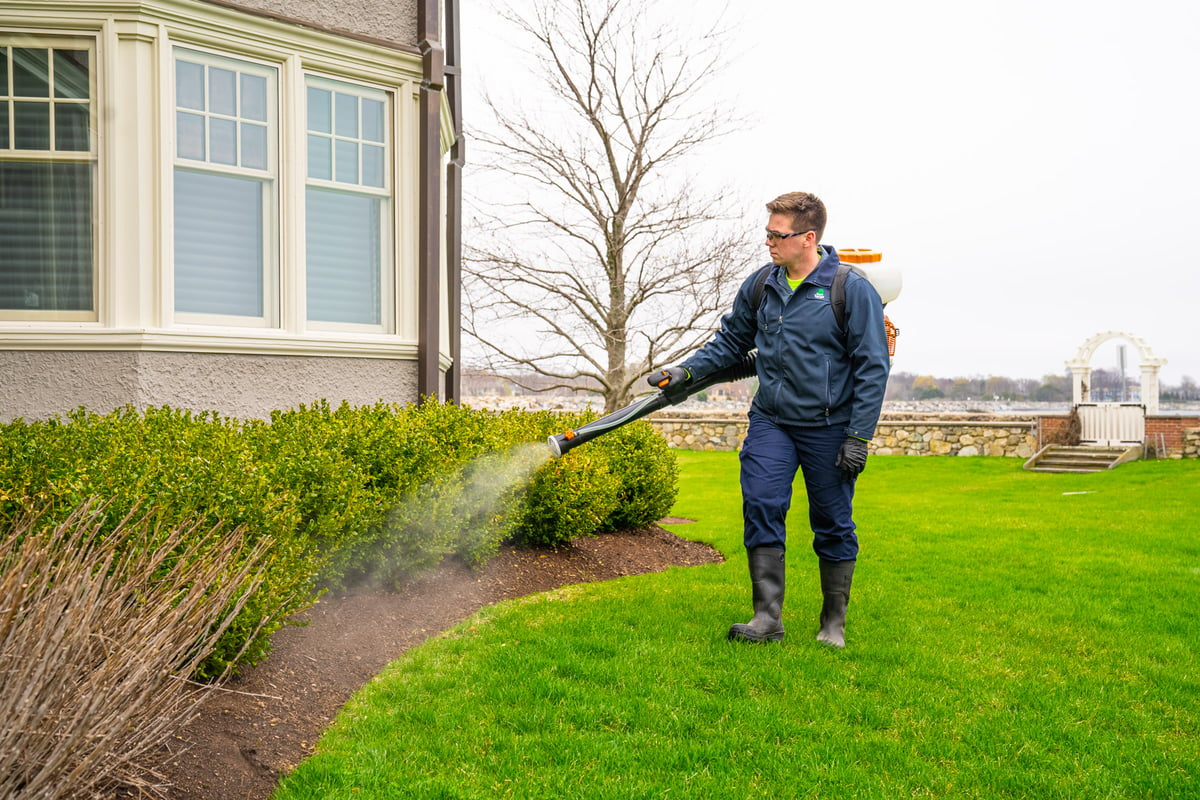
Having a better understanding of mosquitoes can help you know how to deal with them.
Understanding Mosquitoes
Did you know that mosquitoes are the world’s deadliest animal?
That surprising fact often shocks a lot of people who assume it must be a predator like a shark or a snake. But because mosquitoes can carry and transmit deadly diseases like Zika, Malaria, and West Nile, they kill more people every year than any other animal on this planet.
While this problem is much more substantial in third-world countries, mosquitoes in the Northeast are still a problem. Here in New England, we definitely struggle with mosquitoes.
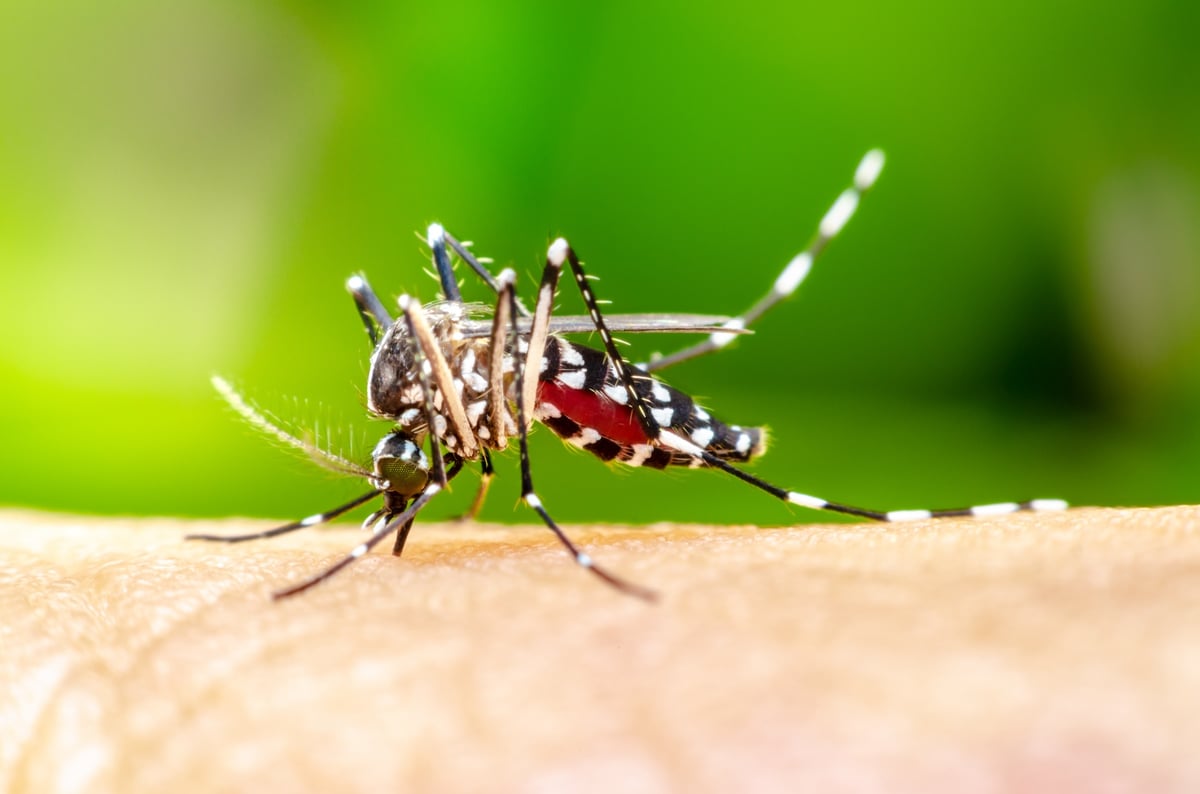
Understanding this pest a little better can help you control mosquitoes. Here are a few things you might not have realized.
- Only female mosquitoes need blood. As we mentioned, they use this blood to produce their eggs. Male mosquitoes feed on nectar in plants and therefore do not bite people or pets.
- Mosquitoes require water. Female mosquitoes will lay their eggs in water and mosquitoes spend their first 10 days there. This is a key reason why it’s so important to look for areas of stagnant water. We’ll go more in-depth about this point further in this guide.
- Adult mosquitoes prefer shady, damp living conditions. They aren’t a pest that wants to bake in the sun. The New England climate is optimal for mosquitoes to thrive.
- Mosquitoes are weak fliers. People often assume that mosquitoes are zipping all about but in reality, they are very weak fliers. Mosquitoes rarely fly far from where they hatch. That means if you have a mosquito problem on your property, there’s a good chance it originated in your own yard or at a close neighbor’s property. This is good news when it comes time to control mosquitoes.
How to Prevent Mosquitoes in Your Yard
The best way to deal with any problem is to prevent it in the first place. While there is no 100-percent foolproof solution to mosquitoes, there are some important steps that you can take to try and keep mosquitoes out of your yard.
Landscaping Tips to Reduce Mosquitoes
There are a few ways that you can aim to prevent mosquitoes in your yard with some better landscaping habits. The idea is to make your property less hospitable to these pests so that they don’t want to hang around.
Keep Your Yard Tidy
One way to discourage mosquitoes from hanging around is to keep your landscaping neat and tidy. Mosquitoes tend to hide when they’re not actively out and about. They will gravitate toward tall grasses and shrubbery where they get some shade and stay hidden.

When you keep your landscape trim and tidy, it can make an impact on mosquito populations hanging around your property. This includes keeping your lawn mowed, ornamental grasses trimmed, and shrubbery cleaned up.
Get Rid of Standing Water
Even more important in your effort to prevent mosquitoes in your yard is getting rid of standing water. Since mosquitoes need water to hatch their eggs, you’ll want to pay attention to areas where standing water might accumulate.
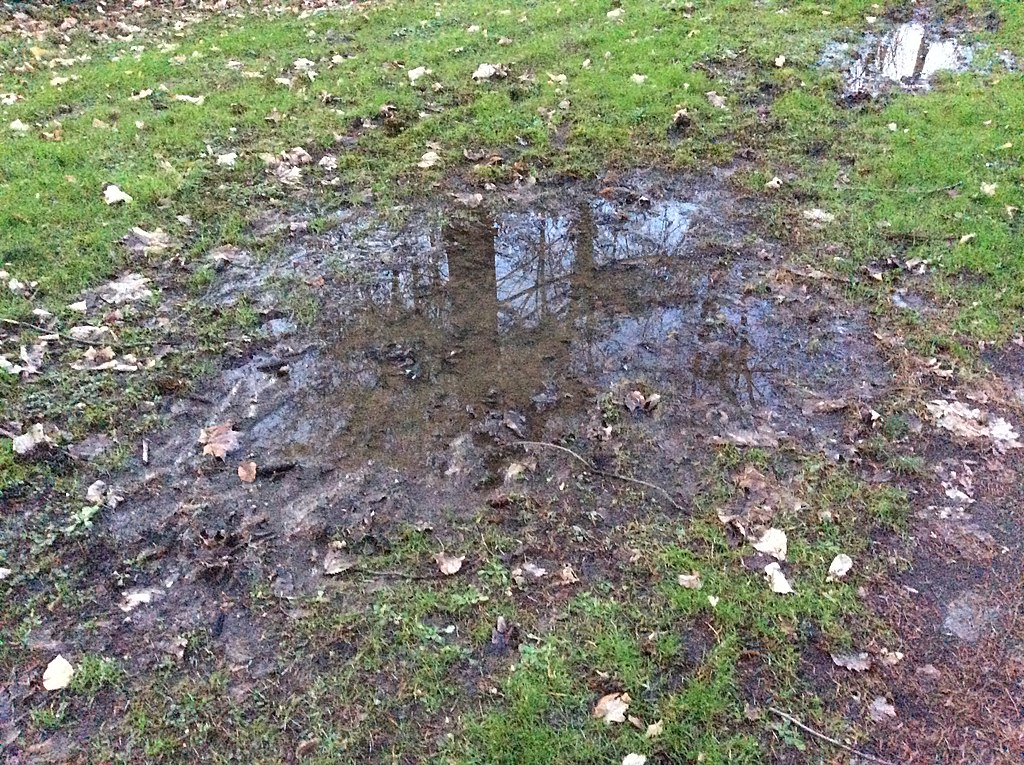
Some common areas of standing water include:
- Tarps and pool covers
- Garbage and recycling bins (that aren’t covered)
- Buckets or other containers left in the yard
- Low spots in plant beds or in the yard itself
- Flower pots or flower pot saucers
- Wheelbarrows
- Kiddie toys
- Watering cans
Gutters are also a common problem zone for mosquitoes. That’s because clogged gutters have standing water. They also have decaying debris that can be another food source for pests.
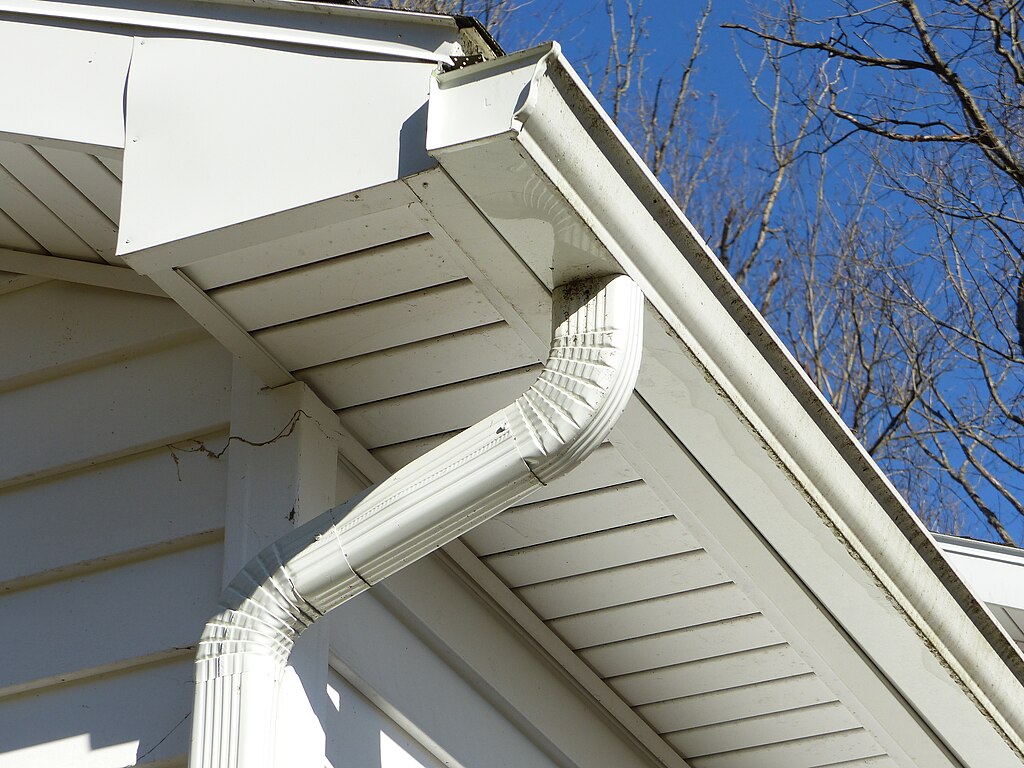
Keep in mind that gutter-draining areas can also become mosquito zones. If a gutter is draining right next to your patio and there’s standing water in that spot, this could become a problem area.
In general, any poorly draining areas of your lawn or plant beds can lead to standing water and become mosquito habitats.
Plants to Repel Mosquitoes
We also want to add a word on mosquito repellent plants. These have become increasingly popular simply because they are an easy “solution.” It doesn’t get much simpler than buying some plants and sticking them around your yard.
Plants like Citrosa, Lavender, Lemongrass, Basil, Peppermint, Catnip, and Mint are said to be able to repel mosquitoes. People think that if they plant these around their property, they can keep mosquitoes away.
Unfortunately, studies have shown that this is not an effective solution to get rid of mosquitoes in your yard.
Hungry mosquitoes in need of their next blood meal will overcome their distaste for a plant if it means getting a chance to feed. Unfortunately, mosquito repellent plants will not be effective enough to make a difference in the mosquito population on your property. These natural mosquito repellents might sound appealing, but they’re simply not a viable solution.
Forget the Mosquito Zapper
Like plants that repel mosquitoes, some people also turn to mosquito zappers as a way to control mosquitoes. Zappers work by attracting bugs, usually using UV light. If you’ve ever seen one of these in action, you’ve probably heard that sizzling noise they make when they zap a bug.
The trouble is, they’re usually attracting and zapping bugs like moths and beetles, neither of which are the problem you’re trying to address. In fact, many of the bugs killed by bug zappers are actually non-biting bugs that are good for the local ecosystem. This is not going to be an effective solution for your mosquito problem.
Spray for Mosquitoes in Your Yard
In addition to the measures above to prevent mosquitoes in your yard, you’ll also want to invest in professional mosquito control.
Understanding where to spray for mosquitoes in your yard is key. The objective is to target mosquito habitats (that is, the areas where they tend to hang out most).
Keep in mind that this is not a “once-and-done service.” Mosquitoes need to be targeted throughout their entire active season. With a pest as dangerous as the mosquito, you need to be diligent about staying on top of them.
How to Get Rid of Ticks in Your Yard
Here in New England, ticks are a major problem.
In fact, it has been recently reported that ticks are now a year-round problem in many parts of the Northeast. With milder winters, there has been an increase in the number of ticks as well as an increased risk of Lyme disease.
Ultimately, you’ll want to take steps to keep these pests out of your yard. We’ll help you better understand what’s involved with maintaining a tick-free yard.
Understanding Ticks
Ticks are small parasites that can range in size from a tiny pinhead (hard to see) to the size of a pencil eraser. Ticks need blood meals to survive and will latch onto a person or animal to get this.
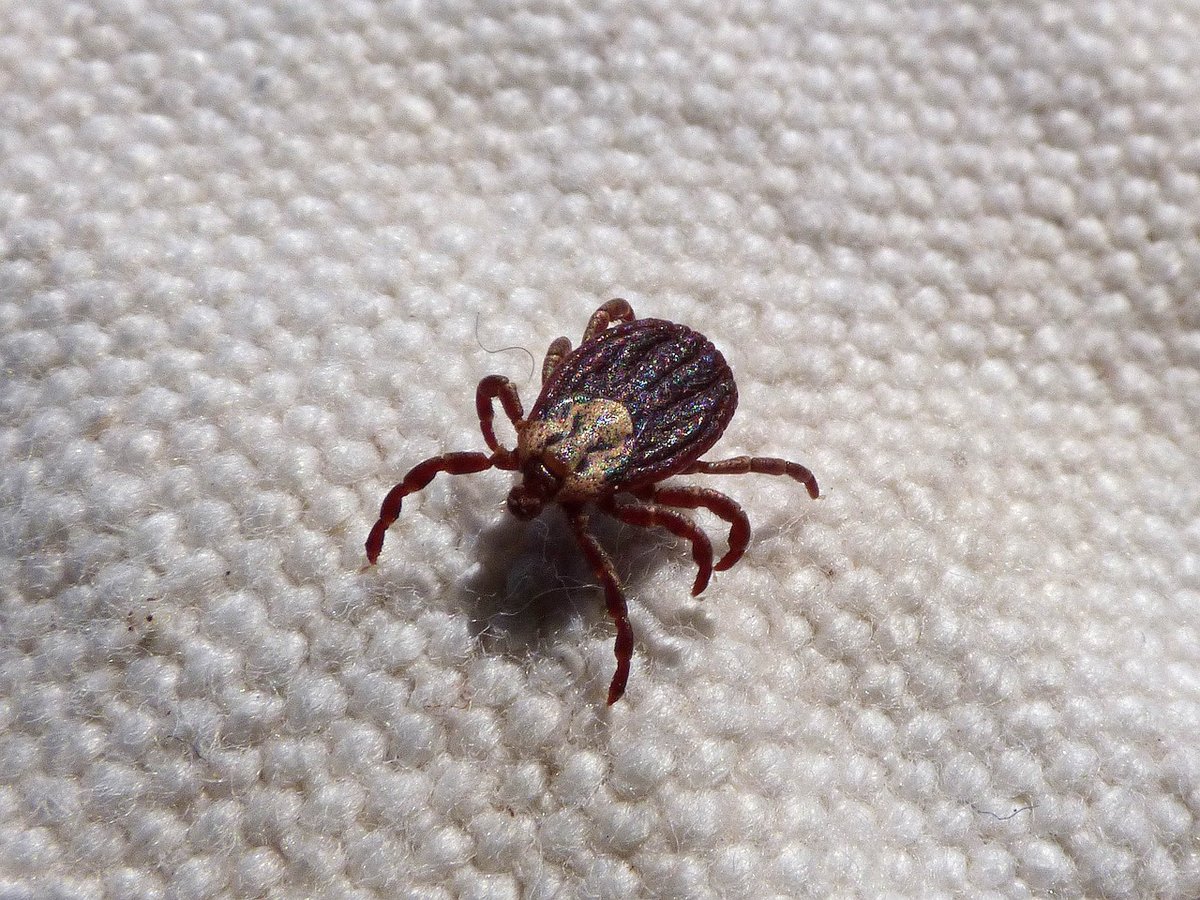
Let’s look at a few important facts about ticks that will help you better understand these pests.
- Ticks can carry and transmit disease. Like mosquitoes, ticks pose a threat because they can carry and transmit diseases. These include Lyme and Rocky Mountain Spotted Fever. It can be difficult to relax when you have to worry about pests possibly lurking in your own backyard.
- There are many different types of ticks. The four most common tick species in New England include Black-Legged Ticks (Deer Ticks), Lone Star Ticks, Brown Dog Ticks, and American Dog Ticks. Deer Ticks are responsible for transmitting Lyme Disease in New England.
- Ticks typically wind up in a yard via another creature. People sometimes ask us how they ended up with ticks in their yard in the first place. Oftentimes, ticks hitch a ride to your yard on the back of another creature, like a rodent. Mice, rabbits, deer, and stray cats commonly transport ticks. They might have been getting their blood meal from that animal until they drop off in your yard, where they’ll be in search of another host. This is when they might end up on a pet or child (or on you!).
Prevention Strategies for Ticks
Just like with mosquitoes, the most effective strategy to address ticks is one that focuses on prevention. You’ll want to take steps to keep these pests out of your yard in the first place.
Yard Maintenance to Discourage Ticks
To get rid of ticks in your yard, you want to make an effort to discourage them from taking up residence in the first place. There are a few yard maintenance steps that you can take to help.
- Maintain a neat and tidy landscape. Just like mosquitoes, ticks love to hide. They’re more likely to take up residence on your property if you’ve got a lot of overgrown landscaping and tall grasses. Keeping the lawn regularly mowed and shrubs neatly trimmed can help reduce these pest populations.
- Clear your property of debris. Since ticks often make their way onto your property on the backs of creatures like rodents, you’ll also want to make an effort to keep unwanted wildlife out. Clear debris that might attract rodents and other pests that like to hide out. This even includes sticks and leaves that are on the ground. Also, remove any trash that might have blown into your yard and keep a tight lid on trash cans. Anything that can become a shelter could become a rodent habitat.
- Cover your wood piles. Rodents like mice and rats frequently hang out in places like wood piles. Keep these covered to prevent them from becoming rodent hotels! Just be sure to make sure there’s still good airflow. Also, stack wood neatly so that there are not big gaps where rodents can make their nests.
- Pay special attention to wooded areas. If you live on a wooded property, you probably already know that your yard is more likely to have ticks. The woods are a natural habitat for ticks but that’s not to say they won’t leave and take up residence somewhere new. If you live somewhere that borders the woods, you can take extra steps to create barriers between the woods and your property. A three-foot wide barrier of mulch can make it more difficult for pests like ticks to travel from the woods into your yard.
Spray for Ticks in Your Yard
The steps above are important to prevent ticks in your yard. But even with your best efforts, there are still going to be some ticks that sneak onto your property. This is why you should also spray for ticks in your yard.
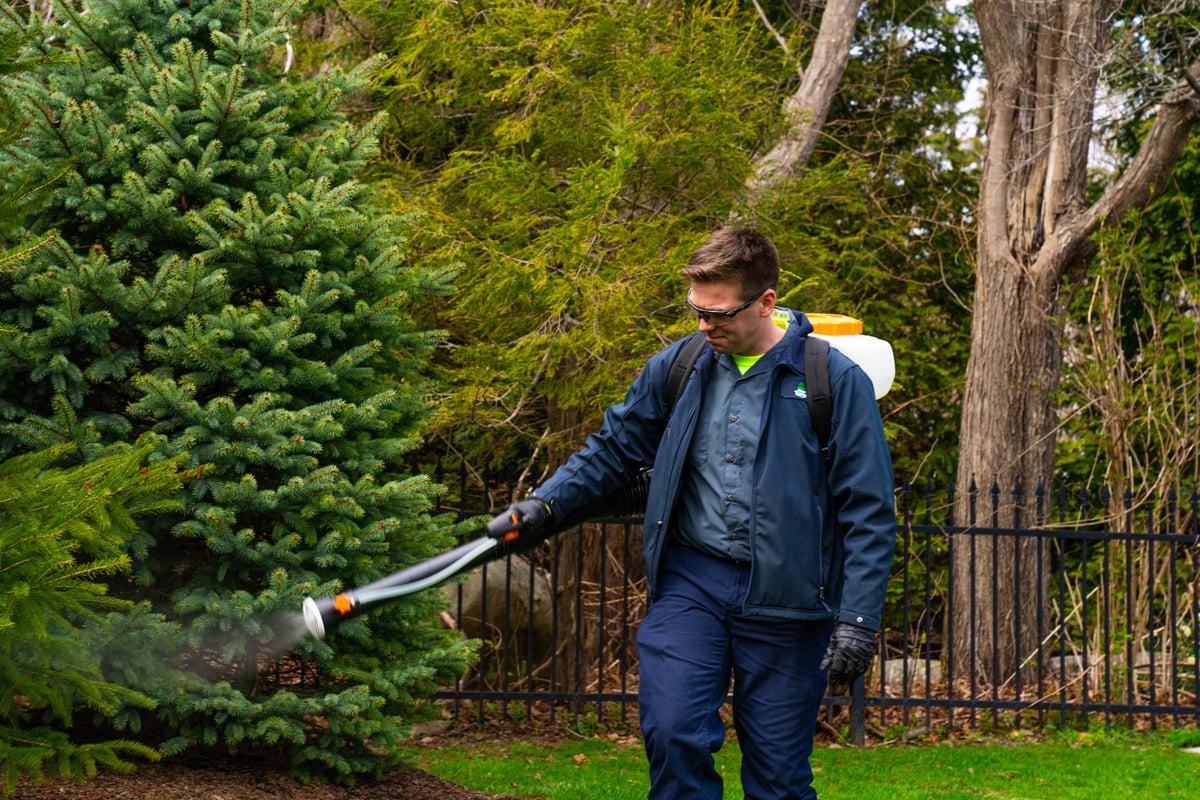
Professionally-applied tick control products can help keep these pests away.
Similar to mosquito control, the key is to target tick habitats. At Seacoast Turf Care, we use pollinator-safe treatments that can help reduce the population of ticks on your property without damaging local ecosystems.
Protecting Yourself and Your Pets from Ticks
Ticks are a serious threat. Because they’re able to carry and transmit disease, we recommend taking other steps to protect yourself and your pets.
In addition to shielding your yard, if you’re going to be in a known tick habitat, like walking in the woods, you should take extra steps to protect yourself. This includes wearing long sleeves and pants and checking your body for ticks.
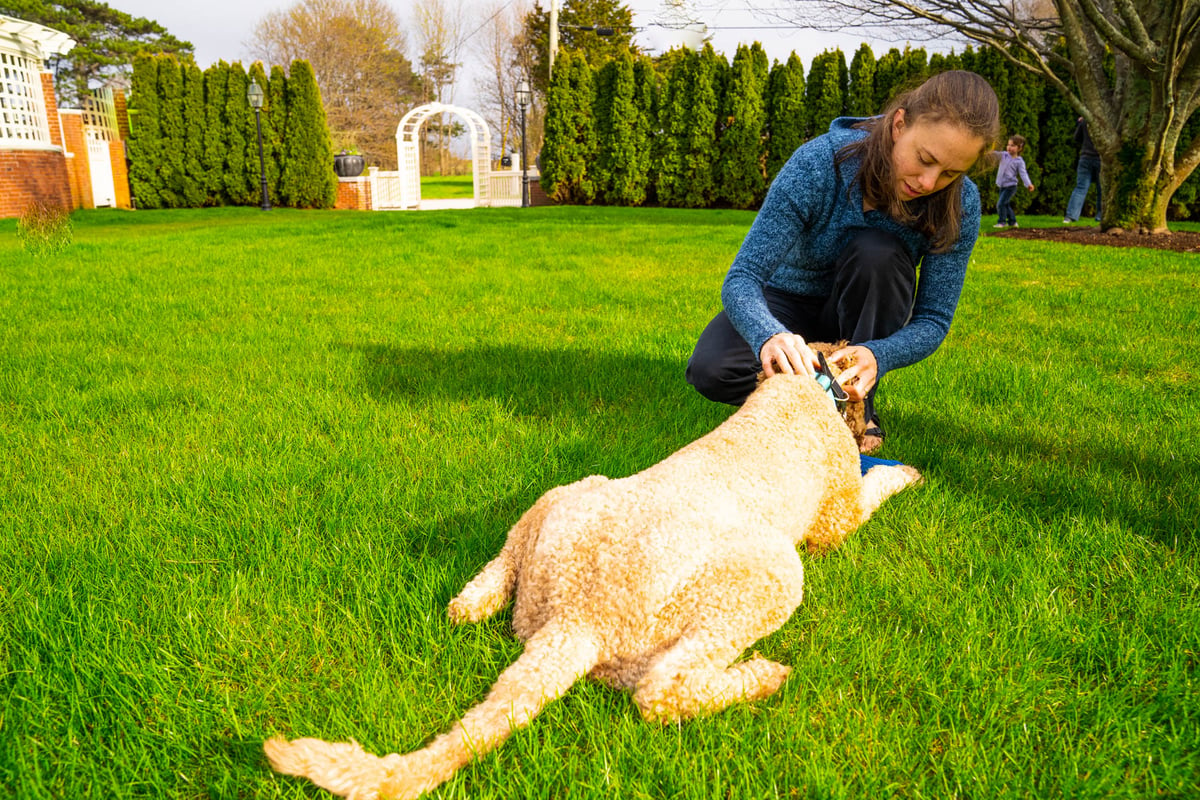
We also always advise that you follow all of your veterinarian’s recommendations for your pet. Even if you spray for ticks in your yard, this should not be a substitute for what the vet recommends.
Whether it’s wearing a flea and tick collar or taking medication, these added steps are important. After all, your pet could still pick up ticks in other locations, even if their safety is improved in your yard.
Is Mosquito and Tick Control Safe?
If you’re considering investing in mosquito and tick control, you probably want to feel confident that these services are safe.
We completely get it. Like you, we have pets and children, too. The last thing that we want is for you to feel as though you’re trading one safety concern for another. You shouldn’t have to feel like you are risking your family’s safety with harsh chemicals to keep them safe from unwanted pests.

While we can’t speak to what other tick and mosquito control services are using, we can tell you about what Seacoast Turf Care uses to address mosquitoes and ticks. We are committed to a safe and effective approach.
Safe Mosquito and Tick Control
At Seacoast Turf Care, we use tick and mosquito control products that are safe. In fact, they are also pollinator-safe and eco-friendly. These high-quality products will help drastically reduce the population of mosquitoes on your property without damaging local ecosystems and wildlife.
When you work with a professional for tick and mosquito control, one of the benefits is that you’re getting an expert who knows how to implement best practices. That means that they are applying the proper amount of product in the proper way.

You also need to keep in mind that pests like mosquitoes and ticks pose a serious threat to your family (including the furry four-legged members).
Pets are often more susceptible to tick bites simply because they spend a lot of time in the grass. Pets also have fur and can’t tell us when something is wrong. Tick bites can be life-threatening in some cases.
DIY Tick and Mosquito Control
We find that people who are worried about the safety of tick and mosquito control products sometimes decide to take matters into their own hands. It might seem as though a DIY approach is safer.
In reality, you’re now the one handling the product (as opposed to a professional who is experienced and trained). Even if it’s a safe product, there are still protocols to follow. For instance, if you apply the wrong amount, you could make a safe product unsafe.

You’ll also have to deal with storing the chemical. If you have pets or kids around, it’s not something that you want to give them access to if it’s just sitting in your garage or shed.
Finally, it’s also worth mentioning that a DIY approach to pest control is not going to be as effective. That’s a big deal when you’re talking about a risky pest. Whether you’re planning to use a homemade concoction that you’ve whipped up in the kitchen or even store-bought control products, they simply aren’t going to work as well as commercial-grade, professional products.
Even the product application is probably going to be more involved than you realize. Since professional mosquito and tick control will involve using professional equipment, you’re going to get better results. A pro will make sure they’re reaching those hard-to-reach spots where these pests might be hanging out.
Hiring Professional Pest Control Services
When it comes to choosing a tick and mosquito control service, you have plenty of options here in the Seacoast region of New England. The key is to do your research.
Just like any other service you’d consider hiring, you want to take time to look into your choices. Spend time on various companies’ websites and learn what they’re all about. Take a look at how they approach their pest control services and what is offered with their programs.
You’ll want to choose a company that you feel confident is going to perform these services properly. That means a pro that is well-trained and takes the threat seriously.
You’ll also want to take time to read reviews and see what other customers have to say about them.
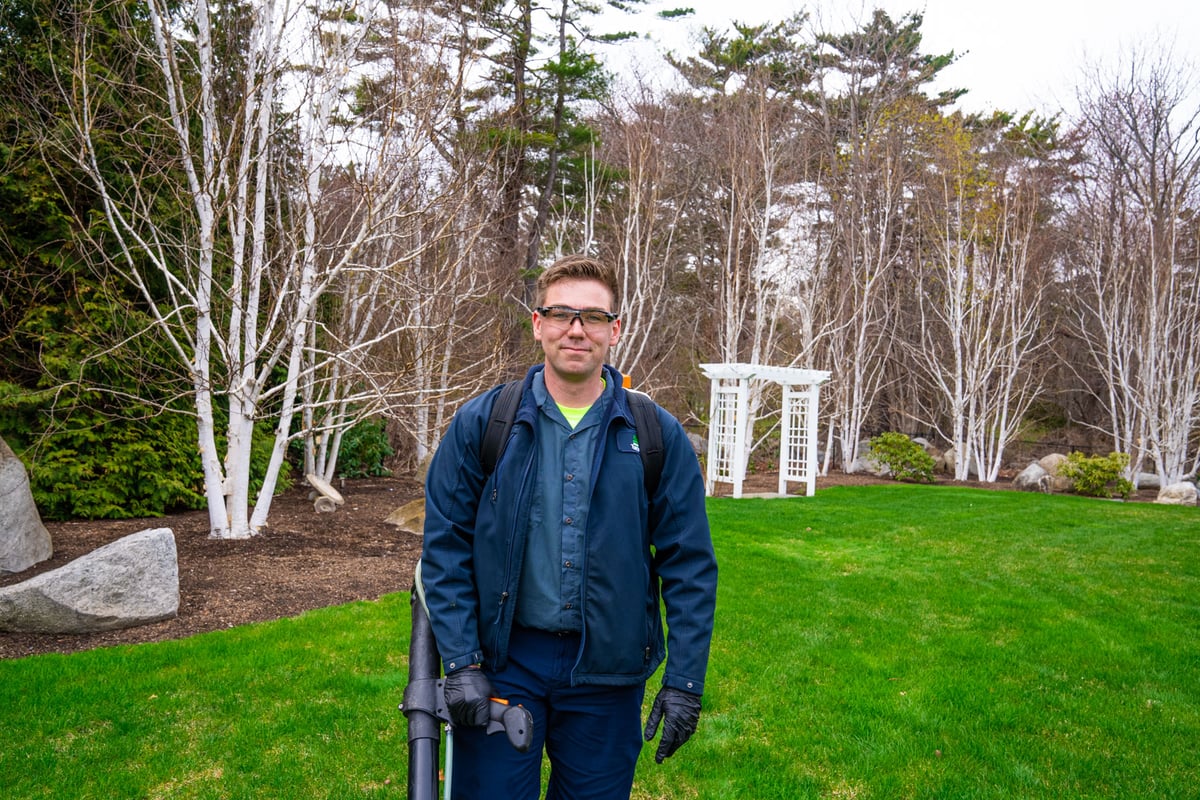
Here are a couple of other things we recommend you look into.
- Are they local? As you look through the options for tick and mosquito control, you’ll find that a lot of companies in our region are part of a franchise system. They have a local branch but they are part of a national company that services thousands of people around the country. But we think that a local company can really understand local pest problems. They can also focus on providing local customer service and getting to know the people they serve.
- Do they offer comprehensive services? There are many tick and mosquito control services in New England that are solely focused on these services. That’s fine but you probably have other needs for your property such as lawn care and tree care needs. Many homeowners really appreciate a company that can offer comprehensive services.
As you weigh your options, look for a company that you feel has your best interest at heart.
In addition to applying products for mosquitoes and ticks in your yard, they should also be making helpful recommendations such as pointing out areas of standing water or showing you where landscaping could be improved to reduce the possibility of a tick habitat.
Your Wise Choice in Mosquito and Tick Pest Control
We know that people are not able to get outdoors and enjoy their properties if they’re constantly being bothered by unwanted pests. That’s why investing in tick and mosquito control services can make a huge difference when it comes to enjoying your New England property more fully.
In the end, when you make a wise choice, you’ll no longer feel like you have to drag the kids or pets inside from playing outdoors. With mosquitoes and ticks taken care of, you can finally enjoy more time outside.
Want to stop worrying about the danger of mosquitoes and ticks on your Southern NH, Maine, or Northeastern Massachusetts property? Get mosquito control pricing today.



